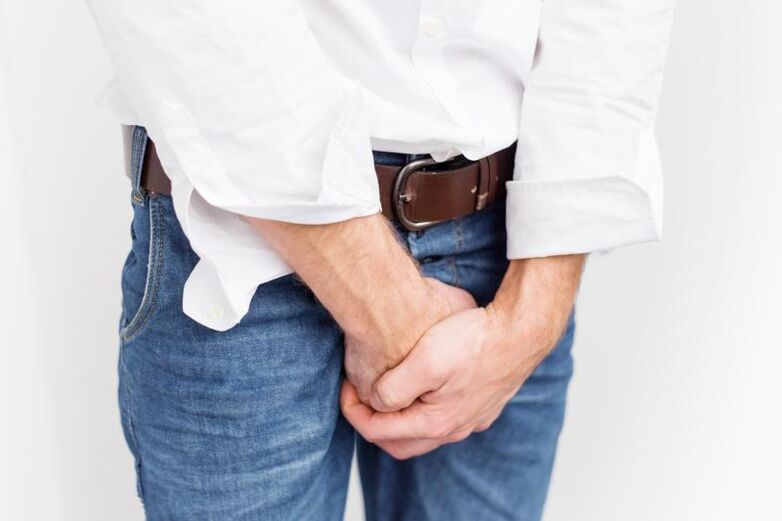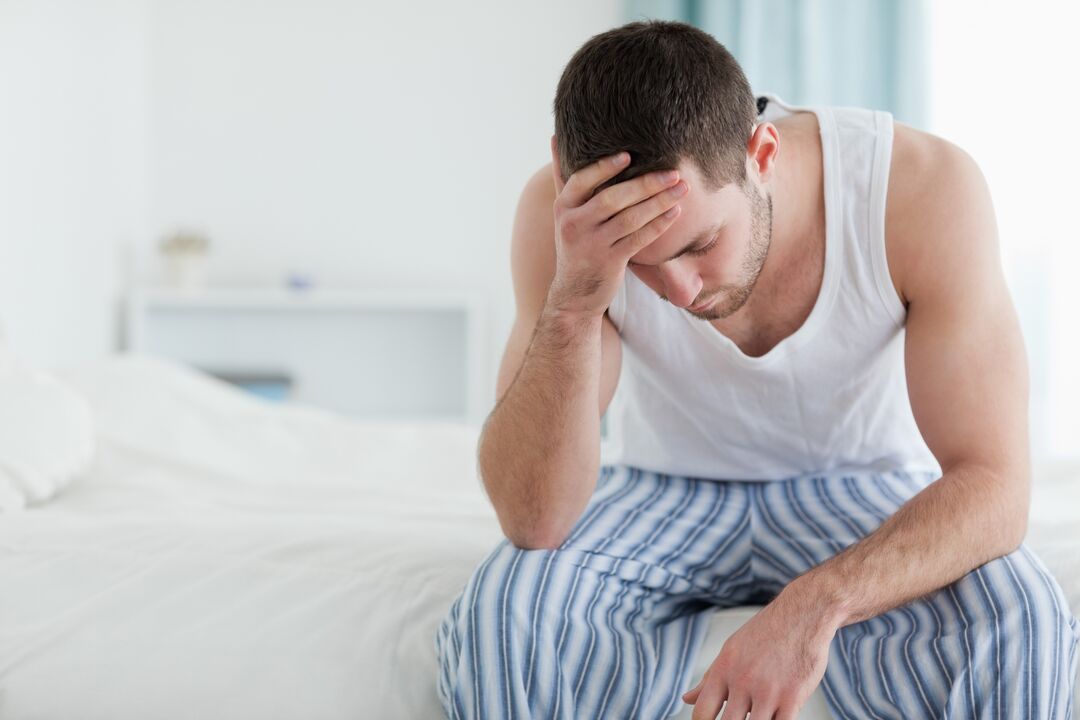
Prostatitis is a disease that can occur only in the male genitourinary system. Representatives of the stronger half rarely rush to see a doctor and often skip a good stage for treatment, leaving a solution to a health problem at the right time, which usually comes too late. It is very important to listen to your body, in time to identify problems that threaten to be imprisoned for a long time in a hospital bed.
Keeping the prostate healthy becomes very important in adulthood. But the disease is actively getting younger. If previously it was diagnosed mainly in men over 40 years of age, now the symptoms of prostatitis begin to be detected at the age of 20-25 years. Almost every second a man suffers.
The role of the prostate in the male body
This organ is often called the "second heart" because of the many important functions performed by the glands. The secretion formed in it, which dilutes the composition of sperm, the gland is part of the sphincter that controls the process of urination, it produces and converts male hormones, and also contributes to the sensation of orgasm.
Signs of prostatitis in men and its symptoms
Prostatitis is an inflammation accompanied by swelling of the tissue of the prostate gland (prostate), it will certainly be noticeable, even if the pathology itself is in the adjacent organs, the vas deferens, urethra and bladder. The main highway of the circulatory and lymphatic systems through the groin area, this exacerbates congestion. Many nerve fibers running in this area of the body contribute to painful seizures.
Symptoms of prostatitis are caused by the type of disease, which is characterized by the cause of its onset. The following types are identified:
- bacteria;
- abacterial, or non -infectious;
- spicy;
- chronic.
Although for each item you can distinguish its own signs of prostatitis, the symptoms have similar manifestations:
- There is discomfort and pain in the suprapubic area, in the groin area and in the scrotum.
- Frequent desire to go to the toilet with wounds and pain, there is a feeling of incomplete emptying.
- Libido drops.
- Body temperature rises, cold horror.
- Depressed mood, apathy, state of depression.
At least two of the symptoms listed are already important reasons to visit a urologist or andrologist. The dangerous disease can remain without manifestation for a long time, and the first signs of prostatitis in men will be found many years after the onset of the provoking factor.
It is beneficial to be wary of pain in the small pelvis, sacrum and lower back. The pain syndrome increases with abstinence or, conversely, too frequent sexual intercourse. Glandular secretions have a natural bacterial barrier, therefore, only fluid stagnation can lead to the beginning of the inflammatory process, when the bactericidal effect disappears.
Signs of prostatitis for various types of diseases
Based on the clinical picture of the disease, many forms and types of prostatitis have been identified. Each of them differs in the symptoms and nature of the course of the disease. How prostatitis manifests itself is due to the cause of its appearance.
Urologists identify two main causes of prostatitis:
- infections that can enter the pelvic organs in a variety of ways;
- fluid stasis in the gland.
What are the factors that shape this phenomenon:
- infections of the genitourinary system with various microorganisms and fungi;
- reduces immunity, prevents protection against infection;
- hypothermia, for example due to sitting on a cold surface for a long time;
- an inactive lifestyle causes stagnation in the body;
- dependence on alcohol and tobacco smoking negatively affects blood circulation, the vessels in the small pelvis narrow;
- proper hormone production is disrupted, which contributes to the emergence of problems in the genital area or impotence;
Let's analyze the individual forms and signs of prostatitis:
- Acute prostatitis- inflammation of the prostate tissue. It is accompanied by edema and disorders of natural processes. The swollen glands enlarge and compress the ducts of the excretory system. There are problems with the administration of natural needs, there arecramps, burning and pain during urination, feeling of urination not completely emptied of blisters. Very advanced cases will be accompanied by swelling of the scrotum, this causes painful discomfort on palpation. The production of secretions that make up the composition of sperm is affected, this affects the maturity of its quality. The intimate sphere of life also suffers. Physiological distress negatively affects psychological comfort. With the focus of purulent prostatitis in men, the symptoms are as follows: viscous yellow discharge from the penis, high fever, acute urinary retention. Often, the cause of the development of the disease in its severe form is an infection carried into the body. Pathogenic microorganisms: viruses (papilloma, influenza), bacteria (chlamydia, Trichomonas) and fungi, for example, from the Candida family. The first signs of prostatitis in men in the acute form will be similar to the first signs of an infectious disease: chills, weakness, muscle aches, fever up to 39 ° C. When cutting pain appears in the pelvic area, a man concludes that it is not just the flu and notpossible to "lie down". Then the problem with going to the toilet joins. Treatment of acute infectious forms can only be carried out properly by a qualified physician. We need a clear diagnosis of the disease and immediate relief from the symptoms of prostatitis. In most cases, antibiotics are prescribed, the duration of which depends on the effectiveness of its action. Medical treatment will be accompanied by physiotherapy procedures that promote accelerated tissue recovery, and prostate massage.
- Chronic prostatitis- the most common pathology of the genitourinary system in men. According to medical statistics, about 80% of all cases of prostatitis detection are chronic forms of the disease. The most common developmental factor is the effect on the body of pathogenic microorganisms, for example, Trichomonas. Lack of frequent physical activity, bad habits, trauma often give rise to chronic prostatitis. Often acute prostatitis that does not completely heal becomes chronic.
The most common signs of chronic prostatitis are:
- discomfort and pain in the suprapubic area, pain in the groin area;
- regularly get up every night to go to the toilet;
- Difficulty urinating
- painful sensation during ejaculation;
The chronic signs of prostatitis in men and its symptoms cause discomfort to many men, but most are patient with them and do not go to a specialist, recklessly thinking that the disease may go away on its own. You can wait for the opposite effect. In the case of this dangerous disease, a man can progress into a more dangerous form of the disease, or chronic prostatitis will turn into an acute form.
The most tragic result of conspiracy is infertility or impotence. Treatment of chronic forms of prostatitis is carried out with the direct participation of a doctor. He prescribed antibiotics and anti-inflammatory drugs. Medications are used to relax the muscles of the urinary tract, thus making it easier for the patient to go to the toilet.

Abacterial / non -infectious prostatitis - factors such as:
- injured;
- sedentary lifestyle;
- constant stress;
- low levels of immunity;
- internal infections of the small intestine or pelvis.
Signs of prostatitis will be discomfort or pain in the pelvic area, difficulty going to the toilet, disturbances in the intimate sphere, the patient is constantly tired, weak, mentally depressed. Medication alone is unacceptable, as it requires an integrated approach of a caring specialist. It is very easy to harm your body by giving your own medicine.
The wrong choice of antibiotics will adversely affect the intestinal microflora. There will be a decrease in immunity, which will lead to the severity of the processes occurring in the prostate gland.
There are medications that only relieve symptoms. If medication does not help for objective reasons, the specialist must replace it and introduce hormone medication into the therapy.
Preventive measures
Prophylaxis to prevent prostatitis are:
- hygiene;
- regular rhythm of sexual activity;
- Play sports;
- regular heating at work in the office;
- complete diet;
- rejection of bad habits;
- timely treatment for any genitourinary tract infections;
- continuous increase in immunity.
The signs of prostatitis in men and its symptoms are very similar to some other dangerous diseases such as cancer, abscesses, cystitis. Negative consequences can result in a man being sterile. Timely referral to an experienced specialist will help prevent health problems. It is very important to check your body regularly: once a year is enough, especially after forty years.















